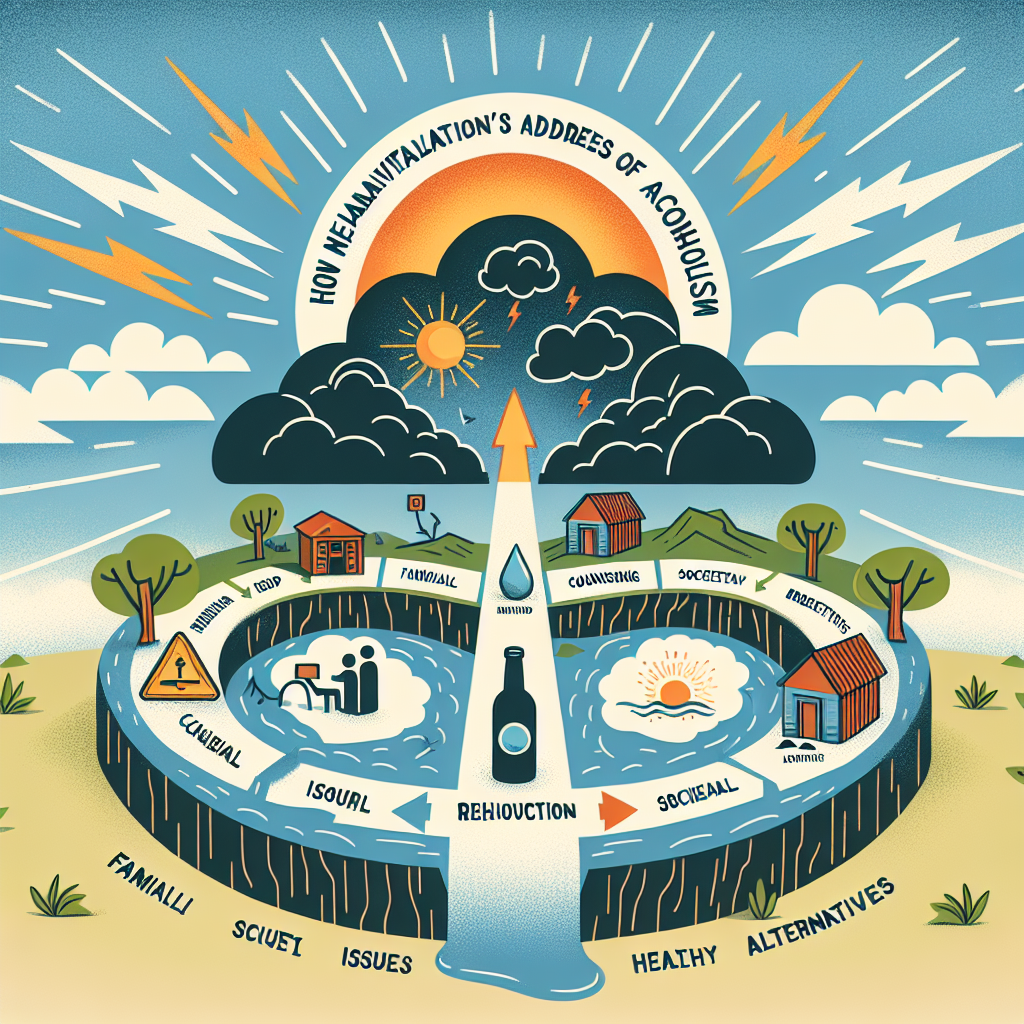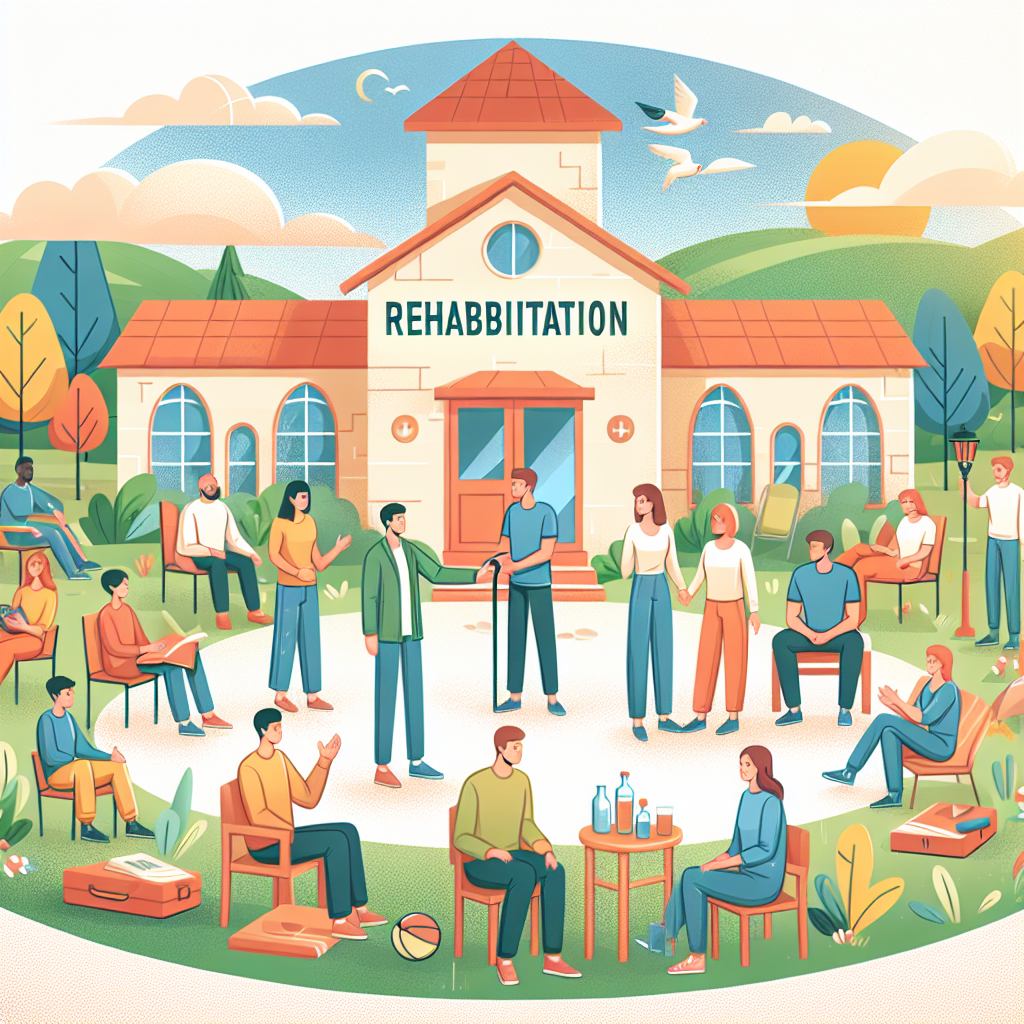-
Table of Contents

“Rehab: Uncovering and Healing the Roots of Teenage Alcoholism for a Brighter Future.”
Introduction
Teenage alcoholism is a pressing issue that affects not only the individual but also their family and community. Addressing this problem requires more than just treating the symptoms; it necessitates a comprehensive approach that tackles the root causes. Rehabilitation programs designed for teenagers can play a crucial role in this process. These programs often incorporate a variety of therapeutic techniques, educational components, and support systems aimed at understanding and mitigating the underlying factors that contribute to alcohol abuse. By focusing on the root causes—such as mental health issues, family dynamics, peer pressure, and socio-economic factors—rehab can offer a more effective and sustainable path to recovery. This holistic approach not only helps teenagers overcome their addiction but also equips them with the tools and resilience needed to lead healthier, more fulfilling lives.
Identifying Underlying Psychological Factors in Teenage Alcoholism Through Rehab
Rehabilitation programs play a crucial role in addressing the root causes of teenage alcoholism by identifying and treating underlying psychological factors. These programs are designed not only to help teenagers overcome their dependency on alcohol but also to delve deeper into the emotional and mental health issues that often contribute to their addiction. By focusing on these underlying factors, rehab can provide a more comprehensive and effective approach to recovery.
One of the primary psychological factors that can lead to teenage alcoholism is trauma. Many teenagers who struggle with alcohol dependency have experienced some form of trauma, whether it be physical, emotional, or sexual abuse. Rehab programs offer a safe and supportive environment where these young individuals can confront and process their traumatic experiences. Through therapy and counseling, they can begin to heal from their past and develop healthier coping mechanisms.
In addition to trauma, mental health disorders such as depression and anxiety are also significant contributors to teenage alcoholism. Adolescence is a tumultuous time, and many teenagers turn to alcohol as a way to self-medicate and escape from their overwhelming emotions. Rehab programs often include comprehensive mental health assessments to identify any co-occurring disorders. Once these disorders are diagnosed, therapists can create personalized treatment plans that address both the addiction and the mental health issues simultaneously.
Family dynamics and relationships also play a critical role in teenage alcoholism. Dysfunctional family environments, characterized by neglect, conflict, or substance abuse, can drive teenagers to seek solace in alcohol. Rehab programs often incorporate family therapy sessions to address these issues. By involving the family in the recovery process, therapists can help improve communication, resolve conflicts, and create a more supportive home environment. This holistic approach ensures that the teenager has a strong support system to rely on during and after their time in rehab.
Peer pressure and social influences are other significant factors that can lead to teenage alcoholism. Adolescents are highly susceptible to the influence of their peers, and the desire to fit in or be accepted can drive them to engage in risky behaviors, including alcohol consumption. Rehab programs provide a space where teenagers can learn to resist peer pressure and develop a stronger sense of self. Group therapy sessions allow them to connect with others who are going through similar struggles, fostering a sense of community and mutual support.
Moreover, low self-esteem and a lack of self-worth are common issues among teenagers who struggle with alcoholism. Rehab programs focus on building self-esteem and self-confidence through various therapeutic activities and interventions. By helping teenagers recognize their strengths and develop a positive self-image, rehab can empower them to make healthier choices and resist the temptation to turn to alcohol.
In conclusion, rehab programs are instrumental in identifying and addressing the underlying psychological factors that contribute to teenage alcoholism. By providing a safe and supportive environment, offering comprehensive mental health assessments, involving the family in the recovery process, and fostering a sense of community, these programs can help teenagers heal from their past, develop healthier coping mechanisms, and build a brighter future. The journey to recovery is challenging, but with the right support and resources, it is entirely possible for teenagers to overcome their addiction and lead fulfilling lives.
The Role of Family Therapy in Addressing Root Causes of Teenage Alcoholism in Rehab
Family therapy plays a pivotal role in addressing the root causes of teenage alcoholism in rehab, offering a comprehensive approach that extends beyond the individual to encompass the entire family unit. This therapeutic method recognizes that teenage alcoholism often stems from a complex interplay of genetic, environmental, and psychological factors, many of which are deeply embedded within family dynamics. By involving the family in the rehabilitation process, therapists can uncover and address these underlying issues, fostering a supportive environment that is conducive to long-term recovery.
One of the primary benefits of family therapy is its ability to improve communication within the family. Often, teenagers turn to alcohol as a coping mechanism for unresolved conflicts or emotional distress that they feel unable to express. Family therapy sessions provide a safe space for open dialogue, allowing family members to voice their concerns, frustrations, and feelings in a constructive manner. This improved communication can help to break down barriers and build stronger, more understanding relationships, which are crucial for the teenager’s recovery journey.
Moreover, family therapy helps to identify and modify dysfunctional family patterns that may contribute to the teenager’s alcohol use. For instance, a family history of substance abuse, enabling behaviors, or high levels of stress and conflict can all play a role in the development of alcoholism. By bringing these issues to light, therapists can work with the family to develop healthier interaction patterns and coping strategies. This not only supports the teenager in their recovery but also promotes overall family well-being.
In addition to addressing dysfunctional patterns, family therapy also focuses on strengthening the family’s support system. A strong, supportive family can be a powerful asset in the recovery process, providing the emotional and practical support that the teenager needs to overcome their addiction. Therapists work with families to build resilience, teaching them how to provide encouragement and support without enabling the teenager’s alcohol use. This balanced approach helps to create a nurturing environment that fosters recovery and personal growth.
Furthermore, family therapy can help to address any co-occurring issues that may be present within the family. For example, mental health disorders, such as depression or anxiety, are often intertwined with substance abuse. By treating these co-occurring issues within the context of family therapy, therapists can provide a more holistic approach to recovery. This comprehensive treatment plan ensures that all aspects of the teenager’s well-being are addressed, increasing the likelihood of successful, long-term recovery.
Another significant aspect of family therapy is its focus on education. Many families lack a thorough understanding of alcoholism and its effects, which can lead to misconceptions and stigma. Family therapy provides education about the nature of addiction, helping family members to understand that alcoholism is a disease that requires treatment and support. This knowledge can reduce feelings of blame and guilt, fostering a more compassionate and supportive family environment.
In conclusion, family therapy is an essential component of rehab that addresses the root causes of teenage alcoholism by improving communication, identifying and modifying dysfunctional patterns, strengthening the support system, addressing co-occurring issues, and providing education. By involving the family in the recovery process, therapists can create a more supportive and understanding environment that is conducive to long-term recovery. This holistic approach not only benefits the teenager but also promotes overall family well-being, paving the way for a healthier, more harmonious future.
Q&A
1. **Question:** How can rehab programs help identify the underlying psychological issues contributing to teenage alcoholism?
**Answer:** Rehab programs often include comprehensive psychological assessments and therapy sessions that help identify underlying issues such as trauma, depression, or anxiety, which may contribute to teenage alcoholism.
2. **Question:** In what ways do family therapy sessions in rehab address the root causes of teenage alcoholism?
**Answer:** Family therapy sessions in rehab address the root causes of teenage alcoholism by improving family communication, resolving conflicts, and creating a supportive home environment, which can mitigate factors like familial stress or dysfunction that contribute to alcohol abuse.
Conclusion
Rehabilitation programs can effectively address the root causes of teenage alcoholism by providing comprehensive treatment that includes medical detoxification, psychological counseling, and behavioral therapy. These programs often incorporate family therapy to address familial issues and improve communication, as well as educational components to teach coping mechanisms and life skills. By targeting underlying issues such as trauma, mental health disorders, and social influences, rehab can help teenagers develop healthier habits and reduce the likelihood of relapse, ultimately leading to long-term recovery and improved overall well-being.



